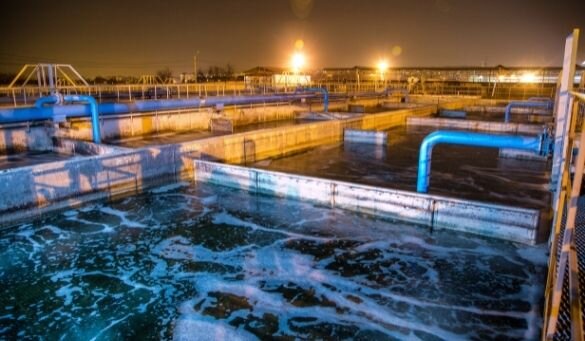Water and wastewater processes are crucial to all cities and towns, as we all depend on them for clean water. Any water processing operation is complex and involves quite a bit of flow measurement that demands reliability and accuracy.
Flow meters allow clean drinking water to reach our homes and businesses. All water applications, even water storage and delivery to treatment plants, need flow meters to monitor leaks and delivery issues.
Flow meters are essential to treating both water and wastewater and are present in every step of the process. Learn more about the importance of flow meters in water management.
Acquisition
The first step in accessing our cities’ drinking water is acquiring water from elsewhere, such as groundwater or nearby bodies of water. Flowmeter technologies like electromagnetic, turbine, and differential pressure monitor issues like pump pressure.
Filtration
After acquisition, the water goes through filtration, and flow meters oversee the delivery of elements crucial to filtration, such as coagulants and polymers.
Disinfection
Disinfection is the next step for clean drinking water. Flow meters ensure that the correct amount of additives, such as fluoride and pH adjustments, are in place to meet safety requirements.
Distribution
Distribution is also a stage of water treatment that flow meters monitor, mainly for leaks. Water distributed to homes and businesses is sent out in increments so meters can detect leaks.
Delivery
Finally, as water is going into our pipes, flow meters once again measure it. Utility companies survey the delivery of water into our homes for leaks and billing.
Collection
The flow meters monitor the water entering our homes, but they also track the water leaving our buildings. Flow meters measure the water collecting in sewers to determine the amount of water used.
Aeration
The first step in disinfecting wastewater is aeration, which is the process responsible for the micro-organisms that treat our wastewater. Flow meters measure the airflow to ensure a productive aeration stage.
Digestion
From there, bacteria break down organic matter in an anaerobic digestion phase. Meters measure the amount of biogas produced to monitor the amount of gas created from this process.
Dosage
After digestion, the dosage stage re-introduces treatment additives, and flow meters help workers measure the correct dosage of the additives into the treated wastewater.
Reuse
Finally, the now treated wastewater can be reused. Flow meters measure the amount of water leaving for surcharging and compliance.
Flow meters are integral in every stage of water treatment. Understanding the importance of flow meters in water management can give you a glimpse into how we turn wastewater into potable water.


